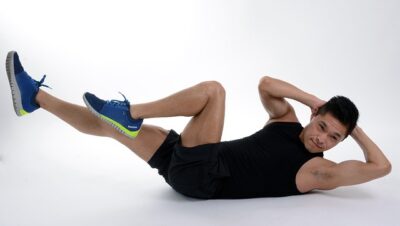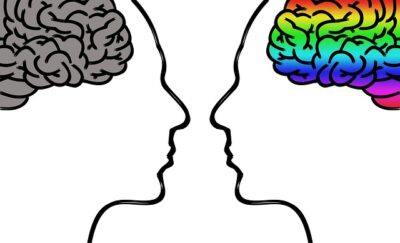10 Essential Strategies for Physical Self Improvement: A Comprehensive Guide to Unlocking Your Full Potential.
Introduction
Physical wellbeing often plays a central role in pursuing personal growth and physical self improvement. Enhancing one’s physical attributes isn’t just about aesthetics; it is a complex process that affects mental wellbeing, emotional stability, and life satisfaction in general..
This comprehensive guide, “10 Essential Strategies for Physical Self Improvement,” is designed to be your roadmap in navigating the complexities and joys of this journey.
The importance of physical self improvement cannot be overstated. It is well-documented that a healthy body is foundational to a healthy mind. This synergy is pivotal in unlocking your full potential in all areas of life, be it personal relationships, professional aspirations, or the pursuit of hobbies and interests.
However, taking on this adventure can be intimidating. The inundation of information, the plethora of methods available, and the often conflicting advice can leave one feeling overwhelmed and directionless.
This is where our guide steps in. We have distilled the essence of physical self-improvement into 10 essential strategies, each a building block in constructing a healthier, stronger, and more fulfilled you.
Our guide is not just about exercising or dieting; it goes beyond these conventional approaches. It encompasses a holistic view of physical self improvement. It considers aspects like mental resilience, the importance of rest, the role of a supportive community, the integration of technology and modern scientific advancements in your journey.
Each section of this guide is crafted with the understanding that every individual’s journey is unique. While the underlying principles remain the same, their application can and should be tailored to fit specific needs, goals, and circumstances.
This personalization is crucial in achieving physical improvements and ensuring these improvements are sustainable and enjoyable.
As you delve into the “10 Essential Strategies for Physical Self-Improvement,” remember that this journey is as much about the destination as it is about the path you take to get there. It’s about discovering what works for you, listening to your body, and finding joy in self-improvement.
So, embark on this journey with an open mind, a committed heart, and the willingness to transform your body and life.
The 10 Essential Strategies for Physical Self-Improvement
-
Nutrition for Optimal Performance
The Foundation of Physical Health: A Balanced Diet
At the core of physical self improvement lies the principle of proper nutrition. The food you consume acts as fuel for your body, impacting not only your physical performance but also your overall health.
A balanced diet provides the correct ratio of macronutrients (proteins, fats, and carbohydrates) to micronutrients (vitamins and minerals) necessary for the body’s ability to produce energy, develop muscle, and sustain critical biological activities. 
But what does a balanced diet entail? It means eating a variety of foods in the proper proportions. This includes:
– Fruits and Vegetables: They should account for a significant portion of your daily intake due to their high vitamin, mineral, and fiber content.
– Proteins: Essential for muscle repair and growth. Sources include meat, fish, eggs, and plant-based options like beans and lentils.
– Whole Grains: Whole wheat bread, brown rice, and oats are excellent providers of sustained energy.
– Healthy Fats: They are found in nuts, seeds, avocados, and oily fish and are essential for brain function and energy production.
Remember, the goal is to fuel your workouts and enhance your overall wellness.
Actionable Tips for a Healthy and Sustainable Eating Plan.
Creating a sustainable eating plan is about making intelligent choices that you can maintain long-term. Here are some actionable tips:
- Plan Your Meals: Take time each week to plan your meals. This helps in making healthier choices and avoids last-minute unhealthy eating.
- Cook at Home: Preparing your meals offers you control over what you consume and allows you to understand the ingredients in your food better.
- Moderation is Key: It’s okay to indulge occasionally, but balance is essential.
- Stay Hydrated: Water helps with digestion and nutrition absorption and is essential for good health in general.
- Listen to Your Body: Eat when you’re hungry and stop when you’re full. Mindful eating helps in understanding your body’s needs.
Seeking advice from nutrition experts can significantly enhance your dietary planning. Registered dietitians or nutritionists can provide personalized advice based on your needs, lifestyle, and fitness goals. They can help you:
– Understand the nutritional value of different foods.
– Make a balanced diet to fit your own medical needs.
– Offer guidance on portion sizes and food choices.
– Provide support and accountability.
2. Embrace Regular Exercise: A Key Pillar in Physical Self-Improvement
Regular exercise is a cornerstone of physical self improvement, with its benefits transcending physical fitness. To fully harness the potential of exercise, it’s crucial to understand its various forms and how they cater to different fitness goals. 
Understanding Different Types of Exercise
- Aerobic Exercise: Running, cycling, and swimming are examples of aerobic exercise, sometimes called cardio exercise. It’s instrumental in improving cardiovascular health, enhancing endurance, and aiding in weight management.
For maximum health advantages, groups like the American Heart Association advise engaging in at least 150 minutes of moderate aerobic activity weekly.
2. Strength Training: This involves using resistance to build muscle mass and strength. Exercises like weight lifting, resistance bands, or bodyweight workouts enhance muscle tone and boost metabolism and bone density. The National Strength and Conditioning Association provides guidelines on strength training suitable for various fitness levels.
3. Flexibility Exercises: Practices like yoga and stretching improve the range of motion, reduce the risk of injury, and enhance muscle recovery. They are pivotal in maintaining overall body health. Yoga instructors and fitness experts often stress the importance of flexibility in a balanced workout routine.
4. Balance Training: Often overlooked, balance exercises are vital, especially as we age. Activities like tai chi or simple balance drills help in preventing falls.
Crafting a Personalized Exercise Routine
- Assess Your Lifestyle and Preferences: Your workout routine should align with your daily schedule and interests. If you enjoy outdoor activities, consider jogging or cycling. High-intensity interval training (HIIT) offers time-efficient workouts for those with tight schedules.
- Set Realistic Goals: Whether weight loss, muscle building, or enhancing flexibility, your goals should guide your exercise choices. For instance, a combination of aerobic and strength exercises benefits weight loss.
- Include Variety: To avoid monotony and plateaus, incorporate different types of exercises. This approach keeps the routine exciting and ensures a holistic development of fitness.
- Listen to Your Body: It’s crucial to be mindful of your body’s signals. Rest and recovery are as important as the workouts themselves. Avoid overtraining; consult a healthcare provider if you have medical concerns.
- Stay Informed and Motivated: Follow reputable fitness platforms, trainers, and organizations for the latest workout trends and advice. This will keep you informed and motivated in your fitness journey.
3. Prioritize Quality Sleep: A Fundamental Aspect of Physical Self-Improvement.
Quality sleep is an often underappreciated but essential component of physical self-improvement. It plays a critical role in physical recovery, mental clarity, and overall health, forming the foundation upon which other self-improvement strategies build.
The Importance of Sleep in Physical Self Improvement.
- Physical Recovery: Sleep is when the body undergoes repair and rejuvenation. Research in sports medicine consistently shows that adequate sleep enhances muscle recovery, improves athletic performance, and reduces the risk of injuries.
- Mental Clarity and Emotional Balance: The Harvard Medical School has highlighted the role of sleep in cognitive processes, including memory, learning, and emotional regulation. A restful night’s sleep is associated with enhanced concentration and decision-making skills, essential for daily tasks.
- Overall Health: Regular sleep patterns are linked to various health benefits. Studies have shown that sufficient sleep can bolster the immune system, regulate hormones, and lower the chance of developing long-term conditions like diabetes, heart disease, and obesity.

Tips for Establishing a Healthy Sleep Schedule
- Consistency is Key: Endeavour to wake up and go to bed simultaneously every day, including on the weekends. This consistency will help your body create an internal clock, improving your sleep quality.
- Create a Relaxing Bedtime Routine: Do activities that calm you before bed, such as reading, meditating, or taking a warm bath. The National Sleep Foundation suggests that such routines signal the brain that it’s time to wind down.
- Optimize Your Sleep Environment: Make sure your bedroom has all the elements needed for a good night’s sleep: a comfy mattress and pillows; if needed, invest in eye shades, earplugs, or white noise machines.
- Monitor Your Diet and Exercise: Avoid heavy meals, caffeine, and alcohol close to bedtime. While exercise during the day can promote better sleep, vigorous activity close to bedtime might interfere with it.
- Limit Screen Time: Blue light from phones, tablets, and computers can interfere with circadian rhythms and lead to poorer quality sleep. According to Sleep Health Journal advice on improving your quality of restful slumber, avoid screens at least an hour before bedtime for optimal quality slumber.
4. Hydration for Maximum Function in Physical Self-Improvement
Water is a critical yet often underestimated element in physical self improvement. Our bodies’ dependence on it profoundly impacts each cell process – including those essential for optimal exercise performance and wellbeing.
The Vital Role of Hydration in Body Function and Exercise Performance
- Cellular Function and Nutrient Transport: Water is essential for every cell in our bodies to function correctly. It aids in transporting nutrients and oxygen to cells, playing a pivotal role in keeping our systems functioning efficiently.
- Temperature Regulation: Physical activity produces heat. Perspiration and the subsequent evaporation of sweat play a crucial role in maintaining body temperature regulation and avoiding overheating.
- Joint Lubrication and Cushioning: Hydration ensures that joints are adequately lubricated, reducing the risk of injuries during physical activities. This is particularly important for high-impact exercises.
- Enhanced Exercise Performance: Dehydration can significantly hinder endurance, strength, and overall performance. Sports nutritionists emphasize the importance of staying hydrated for athletes and others engaging in regular physical activity.
Practical Tips for Staying Hydrated
1. Consistent Water Intake: Be wary of waiting until you feel thirsty to drink water; thirst is a sure sign that you are dehydrating quickly and consistently throughout the day; you should aim to drink lots of it!
- Hydration in Routine: Incorporate drinking water into your daily routine. Drink a glass of water upon waking up, before each meal, and before and after workouts.
- Monitor Hydration Levels: Pay attention to the color of your urine. Pale yellow urine typically indicates good hydration, while dark urine suggests a need for more fluids.
- Hydration During Exercise: The American Council on Exercise recommends drinking water before, during, and after exercise to compensate for fluid loss from sweating.
- Inclusion of Electrolytes: For prolonged or intense exercise sessions, consider beverages with electrolytes to replenish sodium and potassium lost through sweat.
- Avoid Dehydrating Substances: Limit caffeine and alcohol intake, which may contribute to dehydration.
Expert Recommendations on Hydration
Medical professionals and sports nutritionists frequently provide tailored guidelines based on an individual’s specific needs.
For instance, the Institute of Medicine recommends that men consume approximately 3.7 liters and 2.7 liters each day from all sources, including beverages and foods containing water, as daily intake recommendations.
However, these needs can vary based on climate, exercise intensity, and individual health conditions.
5. Mind-Body Connection: Integrating Mental Wellbeing in Physical Self-Improvement
The symbiotic relationship between the mind and body is fundamental to physical self improvement. Understanding and managing the impact of mental stress on physical health is crucial for achieving overall wellness and peak performance.
Impact of Stress and Mental Wellbeing on Physical Health
- Stress and Its Physical Manifestations: Stressful conditions, such as hypertension and immune suppression, can have adverse physical health impacts that include increased risk for heart disease as well as hindered recovery and reduced physical performance. According to multiple health studies, chronic stress is also known to impede recovery processes and lower physical performance levels.
- Psychological State and Physical Performance: A positive mental state can significantly boost physical capabilities. Conversely, mental health challenges can impede physical performance and hinder progress in fitness goals.

Integrating Mindfulness and Relaxation Techniques
- Mindfulness Practices: Mindfulness involves developing an awareness of our thoughts, feelings, body sensations, and environment at every moment. Meditation practices such as this have proven successful at relieving stress, improving concentration levels, and increasing overall wellbeing. The American Psychological Association cites numerous studies supporting the benefits of mindfulness on physical and mental health.
- Relaxation Techniques: Deep breathing, progressive muscle relaxation, and guided imagery can help alleviate stress. These practices not only soothe the mind but also have physical benefits, such as lowering blood pressure and muscle tension.
- Yoga: Research has shown that yoga is a highly effective technique for reducing stress and promoting physical strength and flexibility. It is a spiritual discipline that combines physical postures, breathing techniques, and meditation to foster mind-body health.
Practical Tips for Incorporating Mind-Body Practices
- Regular Practice: Consistency is vital in mindfulness and relaxation practices. Even a few minutes daily can be beneficial.
- Tailored Approaches: Choose practices that fit your lifestyle and preferences. For some, this may be meditation or yoga, while for others, it could be simple breathing exercises or walking in nature.
- Integration with Physical Activities: Mind-body practices can be integrated into physical training. For example, focusing on breathing during exercise can enhance mindfulness.
- Education and Resources: Utilize resources like mindfulness apps, yoga classes, or workshops to learn proper techniques and deepen your practice.
6. Listen to Your Body: A Critical Element in Physical Self-Improvement
Listening to your body is a vital strategy for anyone embarking on a journey of physical self improvement. It involves understanding and respecting the body’s limits and signals, crucial for preventing injuries and promoting long-term health and fitness.
Understanding and Respecting Your Body’s Limits
1. Recognizing Body Signals: Our bodies communicate through fatigue, discomfort, and pain signals. Learning to differentiate between the ordinary exertion of a workout and the warning signs of potential injury is crucial. Ignoring these signals can lead to overtraining and injury.
- Balancing Challenge and Rest: While pushing your limits is part of improving fitness, it’s giving the body time to recover. This is equally important. Balance is critical to sustainable physical improvement.
Preventing Injuries Through Proper Techniques and Recovery
- Proper Technique: Erroneous exercise techniques are often the source of injuries. To protect oneself and avoid accidents during physical activities such as lifting weights or running, learning the proper form for whatever physical activity one engages in is of utmost importance.
- Progressive Training: Gradually increasing the intensity of your workouts helps your body adapt and reduces the risk of injury. Fitness professionals widely advocate this approach.
- Incorporating Rest and Recovery: Take regular rest days so that your muscles can recover. Engage in active recovery, such as yoga or light walking, for optimal muscle repair and growth.
- Assessing Pain and Discomfort: Pain is an indicator from the body that should not be ignored. Consultation with healthcare providers when experiencing persistent or severe discomfort is imperative.
Expert Advice on Injury Prevention
Sports medicine professionals and physical therapists emphasize listening to your body. They recommend:
- Regular Check-ups: Regular check-ups can prevent potential issues, especially for those engaging in high-intensity or high-impact sports.
- Warm-Up and Cool-Down Routines: It is imperative to perform appropriate warm-up and cool-down activities before engaging in physical activity to prime your body and minimize the likelihood of damage.
- Cross-Training: Various exercises can prevent overuse injuries by not overloading specific muscle groups.
- Hydration and Nutrition: Proper hydration and a balanced diet are crucial for muscle function and overall physical health.
7. Celebrate Progress: Maintaining Momentum in Physical Self-Improvement.
 Celebrating progress, no matter how small, is vital to any physical self improvement journey. It serves as a motivational boost and reinforces positive behavior changes. Understanding the power of self-compassion and positive self-talk can transform the trip into an enjoyable and sustainable endeavor.
Celebrating progress, no matter how small, is vital to any physical self improvement journey. It serves as a motivational boost and reinforces positive behavior changes. Understanding the power of self-compassion and positive self-talk can transform the trip into an enjoyable and sustainable endeavor.
The Role of Self-Compassion and Positive Self-Talk
- Fostering a Positive Mindset: For physical self improvement reasons, this implies acknowledging that failures are just a part of the journey and not a sign of failure. Self compassion is treating yourself with care and understanding. The way you would treat a friend.
- Positive Self-Talk: The language we use with ourselves significantly impacts our confidence and motivation. Transforming negative thoughts into positive affirmations can lead to a more productive and encouraging mindset.
Strategies for Celebrating Milestones
- Setting Realistic Goals: Establish achievable, specific goals. This makes it easier to recognize and celebrate progress, keeping motivation high.
- Progress Tracking: Keeping a record of your achievements, whether it’s through a journal, app, or simple checklist, can provide a visual representation of your progress. This act itself can be gratifying and motivating.
- Rewarding Achievements: Set up a system where you reward yourself for meeting certain milestones. These rewards don’t have to be extravagant – they could be as simple as a relaxing bath, a new book, or a special meal.
- Sharing Your Success: Sharing your progress with friends, family, or a support group can amplify your sense of achievement. Their encouragement and recognition can boost your morale and drive.
Real-Life Success Stories
Testimonies from people who have successfully navigated their physical self improvement journeys are inspirational.
Take John, who documented his journey from sedentary to running his first half-marathon. John’s tale, filled with ups and downs, highlights the power of perseverance and small victories along the way – one being celebrating running an uninterrupted mile!
Such real-life examples showcase persistence as well as cumulative achievements over time.
8. Embrace the Journey: Understanding Physical Self improvement as a Lifelong Process
Physical self improvement is more than just a series of goals; it’s a lifelong journey that requires continuous effort, adaptability, and a willingness to embrace change. This perspective is crucial for long-term success and fulfillment in any fitness or health endeavor.
Recognizing the Lifelong Nature of Physical Self Improvement
- Continuous Process, Not a Destination: It’s essential to understand that physical self-improvement doesn’t have an endpoint. Our bodies and circumstances change over time, and so should our approaches to health and fitness.
- Evolving Goals: As you progress in your journey, your initial goals might evolve. What starts as a weight loss journey could become a quest for increased strength, flexibility, or endurance.
The Importance of Flexibility and Adaptation
- Being Flexible with Methods: What works for you at one point may be less effective later. Be open to changing your workout routines, diet, and other health practices as your body and lifestyle change.
- Adapting to Life’s Changes: Life events, such as aging, injuries, or schedule changes, can impact your physical self improvement journey. Adapting your strategies to accommodate these changes is critical to maintaining progress.
- Listening to Your Body: Your body’s needs and capabilities change as you age. Adapting your fitness routine to align with these changes is essential for avoiding injury and maintaining overall health.
Insights from Experienced Athletes and Fitness Professionals
Experienced athletes and fitness professionals often discuss the importance of viewing physical self improvement as a journey. They emphasize that mastery is a moving target and that there’s always room for improvement.
Many share their experiences of how their training methods, nutrition, and recovery strategies have evolved to suit their changing bodies and goals.
For instance, a seasoned marathon runner may shift focus towards more strength training as they age to maintain muscle mass and joint health. Their insights highlight the importance of adaptability and understanding that physical self improvement is ongoing.
9. Find Your Support System: The Role of Community and Professional Guidance in Physical Self-Improvement
Support networks are crucial when embarking on any journey towards physical self improvement, from gathering a supportive community and seeking professional guidance to motivating yourself to stay on the trip and successfully meeting fitness goals.
The Power of a Supportive Community 
- Motivation and Encouragement: A community, whether it’s a fitness class, an online group, or a running club, provides a source of motivation and encouragement. Seeing others work towards similar goals can be inspiring and motivating.
- Accountability: When others know your goals, it adds a layer of accountability that can spur you to stay on track. Regular check-ins with a community or fitness partner help maintain your commitment to your goals.
- Sharing Knowledge and Experiences: An ideal support network provides invaluable opportunities for sharing tips, experiences, and advice from others’ successes and struggles – providing valuable lessons that may assist your journey.
Seeking Professional Guidance
- Expert Advice: Trainers, coaches, and nutritionists offer personalized advice based on their expertise and experience. They can assist in designing a program tailored specifically to your needs, abilities, and goals.
- Safety and Efficiency: Professional guidance ensures you perform exercises safely and efficiently to lower the risk of injury, helping you reach your goals faster.
- Nutritional Guidance: Diet is an integral component of physical fitness. Consulting a nutritionist is key in selecting an optimal diet plan to support physical activities and overall wellbeing.
Resources and Recommendations for Finding Qualified Professionals
- Certification and Credentials: Look for professionals with recognized certifications from reputable organizations. For personal trainers, certifications from the American Council on Exercise (ACE) or the National Academy of Sports Medicine (NASM) are widely respected.
- Specializations: Depending on your goals, you may seek professionals with specific specializations, such as strength training, endurance sports, or nutritional planning.
- Referrals and Reviews: Personal referrals or online reviews can help find reliable professionals. Check out local community boards, social media groups, or fitness forums for recommendations.
- Trial Sessions: Many professionals offer trial sessions. Use these opportunities to gauge if their style and approach align with your preferences and needs.
10. Make it Fun and Sustainable: The Key to Lasting Physical Self-improvement.
One of the most crucial yet often overlooked strategies for physical self improvement is ensuring that your fitness journey is enjoyable and sustainable.
The secret to long-term success in fitness and health is to find joy in your activities, transforming what could be seen as a chore into a rewarding and fun part of your life.
Finding Joy in Physical Activities
- Personal Enjoyment is Crucial: Finding activities you enjoy can increase the odds that they become part of your routine over time, so selecting exercises and physical activities you look forward to participating in is crucial for long-term success.
- Experiment with Different Activities: Be bold and try new sports, fitness classes, or outdoor activities. Experimentation keeps your routine fresh and may lead you to discover a passion you never knew you had.
- Incorporate Social Elements: Many people find exercising with friends or in a group more enjoyable than doing it alone. Group classes, sports teams, or simply having a workout buddy can add a social, fun element to your fitness routine.
Exploring Fitness Trends and Outdoor Activities
- Stay curious about new trends: The fitness world constantly evolves, and the latest trends emerge. Whether it’s dance cardio, aquatic fitness, or virtual reality workouts, trying out new trends can bring a sense of novelty and excitement.
- Reconnect with Nature: Outdoor activities like hiking, cycling, or kayaking not only provide excellent physical exercise but also allow you to connect with nature, which can be a refreshing change from indoor gyms or home workouts.
- Sports as a Fun Option: Engaging in a sport isn’t just about competition; it’s also a great way to stay active, challenge yourself, and have fun. Whether tennis, basketball, or something less conventional like ultimate frisbee, sports can be an enjoyable way to improve fitness.
Making Physical Self Improvement a Sustainable Choice
- Listen to Your Body: Pay attention to what your body enjoys and how it reacts to different activities. It might be worth exploring other options if something feels like a strain or a chore.
- Balance Is Key: Your fitness routine should balance intensity with enjoyment. Overdoing it can lead to burnout, while too little activity might not provide the desired results.
- Set Realistic Expectations: Understand that progress requires patience and that every milestone matters equally. Setting achievable goals and acknowledging small achievements will help maintain a sustainable mindset and positive outlook.
Recap and Reiterate Value: Unlocking Your Full Potential Through Physical Self-Improvement.
In this comprehensive guide, we’ve explored 10 essential strategies for physical self improvement. Each strategy is vital in the journey toward unlocking your full potential in physical health and all aspects of life. Let’s briefly summarize these key takeaways and reemphasize the transformative power of this journey.
- Embrace Regular Exercise: Understand different types of exercises and tailor your routine to fit your goals and lifestyle.
- Prioritize Quality Sleep: Recognize sleep as a critical factor for recovery and overall health, and adopt practices to improve sleep quality.
- Hydration for Optimal Function: Stay hydrated for proper body function and enhanced exercise performance.
- Mind-Body Connection: Manage stress through mindfulness and relaxation techniques, acknowledging the impact of mental wellbeing on physical health.
- Listen to Your Body: Pay attention to your body’s signals and prevent injuries through proper technique and recovery strategies.
- Celebrate Progress: Use positive self-talk and celebrate all achievements to maintain motivation.
- Embrace the Journey: Understand that physical self-improvement is an ongoing process, and be ready to adapt your strategies as needed.
- Find Your Support System: Leverage a community’s support and professionals’ support for motivation, accountability, and expert guidance.
- Make it Fun and Sustainable: Engage in activities you enjoy to ensure your physical self-improvement journey is enjoyable and lasting.
- Recap and Reiterate Value: Remember, each strategy interconnects and contributes to a comprehensive approach to improving your physical and overall quality of life.
The Transformative Potential of Physical Self-Improvement
Physical self-improvement means more than simply reaching fitness goals; it means unleashing your full potential in all aspects of your life. By adopting physical and mental wellbeing strategies into daily routine, you’re committing a healthier body, clearer thinking mind, enhanced emotional wellbeing and increased sense of self.
These practices work together to form an incredible synergy that can change your life by increasing capabilities, resilience, and overall happiness. Physical self improvement can become an exciting journey that constantly offers rewards – opening doors to new opportunities and experiences.
wellbeing


